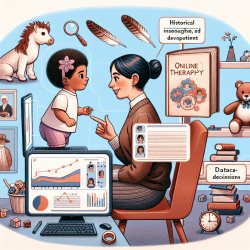Introduction
The COVID-19 pandemic has starkly highlighted the inequities faced by older persons, underscoring the urgent need for a comprehensive international treaty to protect their health and human rights. The research article "COVID-19 raises a health and human rights imperative to advance a UN Convention on the Rights of Older Persons" explores the necessity of such a treaty. As practitioners, it is essential to understand these developments to improve our skills and advocate for the rights of older persons.
Understanding the Research Outcomes
The research emphasizes the critical need for a UN Convention dedicated to the rights of older persons. This proposed convention aims to address the systemic neglect and discrimination that older persons face, especially in health policy. Key outcomes of the research include:
- Recognition of the need for explicit international legal obligations to prevent age-based discrimination and ensure age-appropriate healthcare.
- Highlighting the importance of intersectional approaches that consider various vulnerabilities such as gender, race, and disability.
- The necessity for accountability mechanisms to monitor and enforce the rights of older persons globally.
Implementing Research Outcomes in Practice
Practitioners can enhance their skills by integrating these research outcomes into their work. Here are some actionable steps:
- Advocacy and Awareness: Promote awareness of the rights of older persons within your community and professional networks. Encourage discussions on the importance of a dedicated UN Convention.
- Policy Development: Engage in policy development that incorporates the health and human rights of older persons. Advocate for policies that ensure access to quality healthcare and social services.
- Training and Education: Participate in training programs that focus on the unique needs of older populations. Equip yourself with knowledge about age-related health issues and human rights frameworks.
- Collaboration: Work with international and regional organizations to support initiatives aimed at advancing the rights of older persons.
Encouraging Further Research
While the current research provides a strong foundation, further exploration is needed to address ongoing challenges. Practitioners should consider engaging in or supporting research that examines:
- The impact of intersectional discrimination on older persons' health outcomes.
- Effective strategies for implementing international human rights obligations at the national level.
- Innovative approaches to providing age-appropriate care in diverse settings.
Conclusion
As practitioners, we have a responsibility to advocate for and implement policies that uphold the health and human rights of older persons. By integrating the research outcomes into our practice and encouraging further research, we can contribute to a more equitable and just society for all age groups.
To read the original research paper, please follow this link: COVID-19 raises a health and human rights imperative to advance a UN Convention on the Rights of Older Persons.










